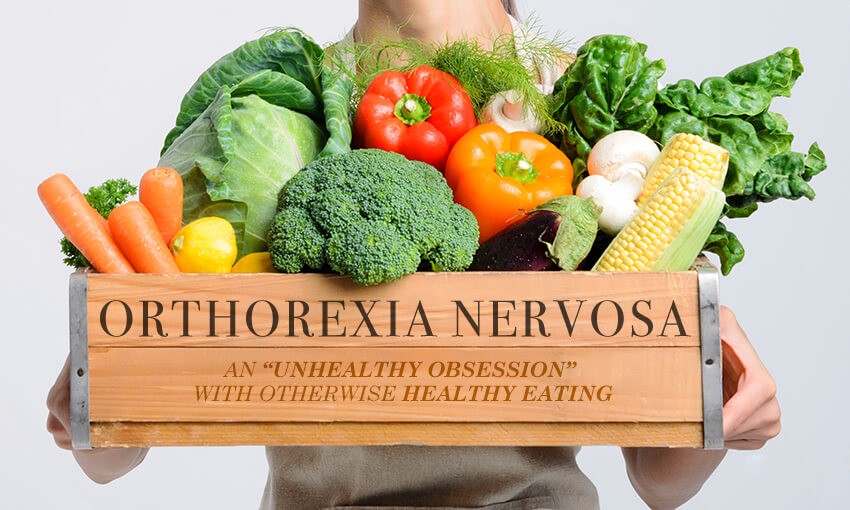
Is It Healthy Eating or Orthorexia?
Eating healthy is a good thing but can it become an obsession? “Orthorexia” is an “unhealthy obsession with eating healthy.” This term was coined
by Dr. Steven Bratman in 1990. This term is not yet recognized as a clinical diagnosis in the DSM-5 but there are many individuals who struggle with
symptoms related to it. According to Dr Bratman, orthorexia may begin as a general interest in eating healthy food but shifts into an obsession when
“eating healthily has become an extreme, obsessive, psychologically limiting and sometimes physically dangerous disorder” (1) WIth orthorexia the obsession
with healthy eating becomes so powerful that other aspects of life start to suffer. Those who suffer from orthorexia often have an obsessive focus
on food choice, planning, purchase, preparation and consumption. Food is no longer pleasurable for someone with orthorexia but rather becomes a source
of health. Orthorexia is coming among those recovering from anorexia as they are shifting their obsession with weight loss to healthy eating while
maintaining control. Orthorexia is unlike anorexia because of someone’s obsession with purity and not weight; those with orthorexia struggle with a
feeling of “unclean” or “polluted” despite having carefully monitored their diet. 1
Dr Bratman created a self test to help individual’s assess their healthy eating behaviors. If you are concerned about yourself or someone else and answer
yes to any of the following questions it may be a sign of orthorexia and best to seek support from a health care professional like a registered dietitian.
(1) I spend so much of my life thinking about, choosing and preparing healthy food that it interferes with other dimensions of my life, such as love, creativity,
family, friendship, work and school.
(2) When I eat any food I regard to be unhealthy, I feel anxious, guilty, impure, unclean and/or defiled; even to be near such foods disturbs me, and I
feel judgmental of others who eat such foods.
(3) My personal sense of peace, happiness, joy, safety and self-esteem is excessively dependent on the purity and rightness of what I eat.
(4) Sometimes I would like to relax my self-imposed “good food” rules for a special occasion, such as a wedding or a meal with family or friends, but I
find that I cannot. (Note: If you have a medical condition in which it is unsafe for you to make ANY exception to your diet, then this item does not
apply.)
(5) Over time, I have steadily eliminated more foods and expanded my list of food rules in an attempt to maintain or enhance health benefits; sometimes,
I may take an existing food theory and add to it with beliefs of my own.
(6) Following my theory of healthy eating has caused me to lose more weight than most people would say is good for me, or has caused other signs of malnutrition
such as hair loss, loss of menstruation or skin problems.
1 For more information, check out Dr Bratman’s website http://www.orthorexia.com/what-is-orthorexia/



